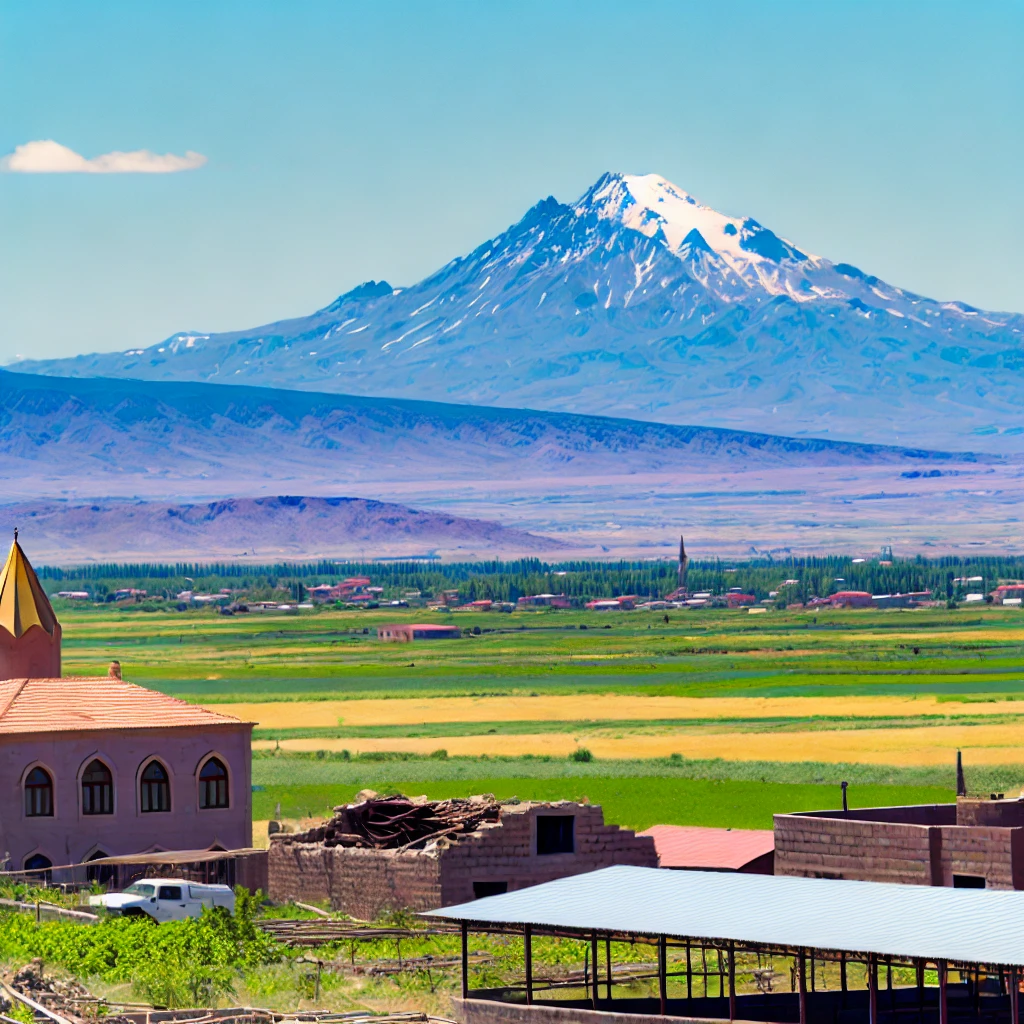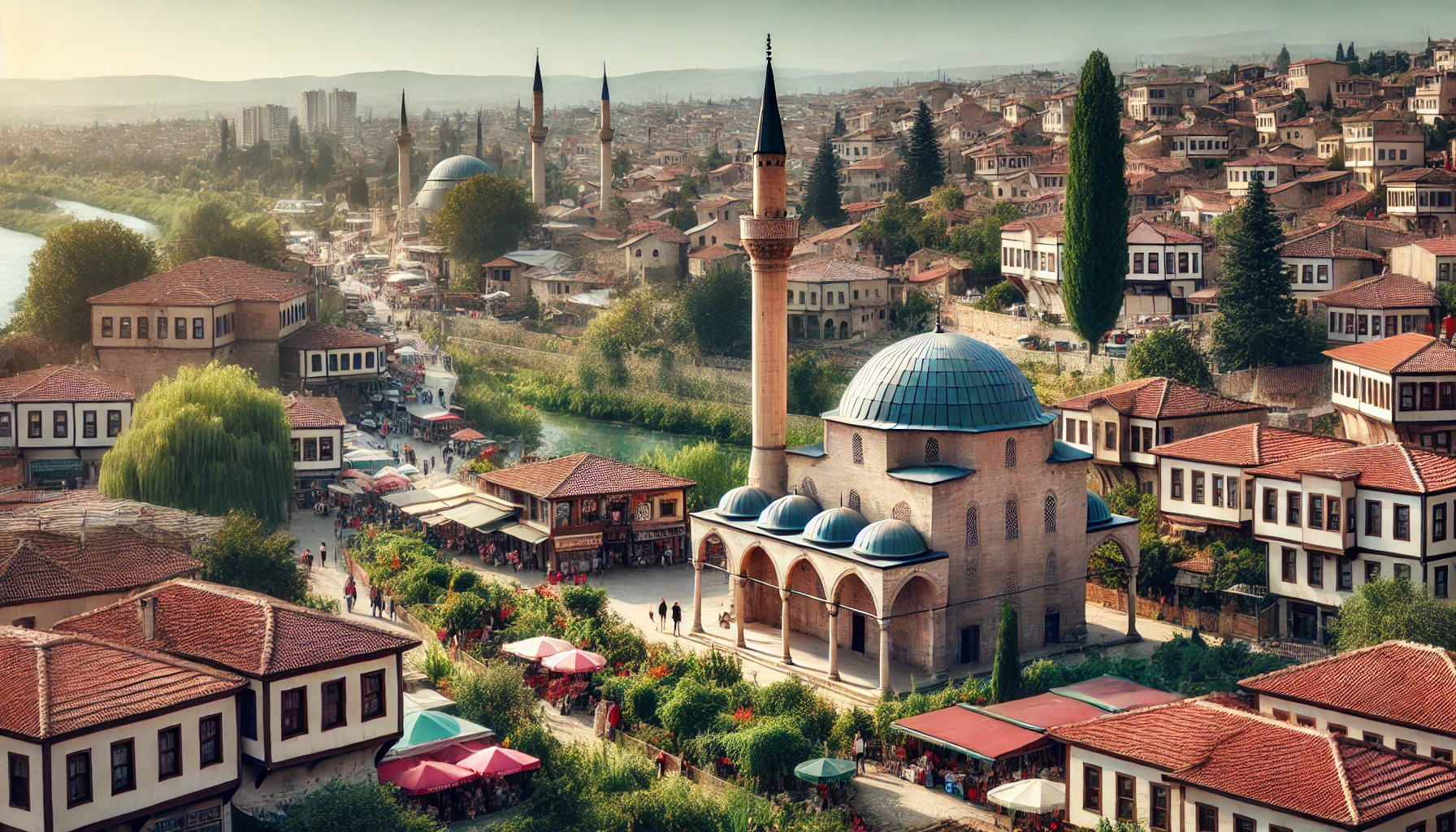Limyra: The Ancient Lycian Capital
Located in the picturesque Finike district of Antalya province, Limyra is an ancient city with a rich historical tapestry. Serving as the capital of the Lycian civilization for a period, Limyra boasts well-preserved ruins that offer a glimpse into the grandeur of its past. This ancient city, also known as Zemuri, dates back to the 5th century BC and played a crucial role in the resistance against Persian domination. Despite its eventual desertion due to Arab raids, Limyra remains a significant archaeological and historical site.
The Origins and Historical Significance of Limyra
Early Beginnings
Limyra’s history can be traced back to the 5th century BC. Initially, it was a small settlement that gradually evolved into a thriving city. Its strategic location and fertile lands contributed to its growth and prominence in the region. The city’s early development is evidenced by the numerous archaeological finds that have been unearthed, including pottery, inscriptions, and architectural remains.
Capital of the Lycian League
Limyra’s most significant period of prominence came when it served as the capital of the Lycian League. This confederation of Lycian cities was established as a unified front against Persian encroachment. The city’s status as the capital underscores its political and cultural importance within the Lycian civilization. Limyra was a symbol of resistance and autonomy, with the eternal fire of freedom of Lycia being metaphorically ignited here.
Byzantine Era and Desertion
During the Byzantine era, Limyra became a center for episcopacy, further cementing its significance in the region. However, the city faced numerous challenges, including frequent Arab raids. These raids, combined with other factors, led to the gradual decline and eventual desertion of Limyra. Despite this, many of the city’s ancient structures have survived, providing valuable insights into its storied past.
Key Landmarks and Archaeological Sites
The Theatre
One of the most impressive structures in Limyra is the ancient theatre. This well-preserved edifice, carved into the hillside, showcases the architectural prowess of the Lycians. With a seating capacity of several thousand, the theatre was a central venue for cultural and social events. Visitors can still see the stage, seating areas, and the remnants of the orchestra, offering a vivid picture of ancient performances.
The Heroon
The Heroon of Pericles is another notable landmark in Limyra. This monumental tomb was built in honor of Pericles, a prominent Lycian ruler. The Heroon is adorned with intricate reliefs and sculptures that depict scenes from Lycian mythology and daily life. This structure highlights the artistic and cultural achievements of the Lycians and their reverence for their leaders.
The Tombs
Limyra is home to numerous rock-cut tombs that are characteristic of Lycian burial practices. These tombs, often carved into cliffs and hillsides, are remarkable for their elaborate facades and intricate carvings. The tombs provide a fascinating glimpse into the funerary customs and beliefs of the ancient Lycians. Visitors can explore these tombs and admire the artistry that went into their construction.
The City Walls and Acropolis
The city walls of Limyra, although partially ruined, still stand as a testament to the city’s defensive capabilities. These walls, which once encircled the city, were designed to protect its inhabitants from invasions. The Acropolis, situated on a hill overlooking Limyra, offers panoramic views of the surrounding landscape. This elevated area served as a refuge during times of conflict and also housed important religious and administrative buildings.
The Eternal Fire of Freedom
Symbol of Resistance
Limyra’s role as the capital of the Lycian League is a significant aspect of its history. The city was at the forefront of the Lycian resistance against Persian domination. The eternal fire of freedom, symbolically lit in Limyra, represents the indomitable spirit of the Lycians and their quest for autonomy. This legacy of resistance and resilience is a central theme in the narrative of Limyra.
The Lycian League
The Lycian League was one of the earliest known federations in history. It consisted of several Lycian cities that banded together to form a united front against external threats. The League’s capital, Limyra, was the political and cultural hub where important decisions were made. The League’s democratic principles and collective governance were ahead of their time and influenced later political systems.
Visiting Limyra
Getting There
Limyra is located near the town of Finike in Antalya province. The site is easily accessible by car, and there are also organized tours that include Limyra as part of their itinerary. The nearest major city is Antalya, which has an international airport and good transport connections to other parts of Turkey.
Exploring the Ruins
Visitors to Limyra can explore the well-preserved ruins at their own pace. The site’s layout allows for a comprehensive exploration of its key attractions, from the theatre and Heroon to the rock-cut tombs and city walls. Guided tours are available for those who want to gain deeper insights into the history and significance of each landmark.
Practical Tips
When visiting Limyra, it’s important to wear comfortable shoes and bring water, especially during the hot summer months. The site is expansive, and exploring it thoroughly can take several hours. Early morning or late afternoon visits are recommended to avoid the midday heat. Don’t forget to bring a camera to capture the stunning ruins and landscapes.
The Charm of Finike
Natural Beauty
The town of Finike, located near Limyra, is known for its natural beauty and serene atmosphere. Surrounded by lush forests and the turquoise waters of the Mediterranean Sea, Finike offers a tranquil retreat for visitors. The town’s scenic landscapes provide a perfect backdrop for hiking, picnicking, and outdoor activities.
Local Culture
Finike’s rich cultural heritage is evident in its traditional architecture and local customs. Visitors can explore the town’s charming streets, visit local markets, and experience the warm hospitality of its residents. The town’s proximity to Limyra makes it an ideal base for exploring the ancient ruins and the surrounding region.
Accommodation and Dining
Finike offers a range of accommodation options, from cozy guesthouses to comfortable hotels. Visitors can enjoy traditional Turkish cuisine at local restaurants, which serve dishes made from fresh, locally sourced ingredients. The town’s relaxed atmosphere and friendly locals make it a welcoming destination for travelers.
Conclusion: Discovering Limyra
Limyra, with its rich history, stunning architecture, and cultural significance, offers a unique and captivating experience for travelers. This ancient city, once a thriving capital of the Lycian League, continues to enchant visitors with its timeless allure. From the grand theatre and the Heroon of Pericles to the intricate rock-cut tombs and city walls, Limyra stands as a testament to the artistic and architectural achievements of ancient civilizations. For anyone interested in history, archaeology, or simply the beauty of ancient ruins, a visit to Limyra is an unforgettable journey through time.
Latest Update: Jul 20, 2024
Your Content Goes Here
TAGS: Anatolia travel, ancient city, ancient ruins, Antalya province, cultural heritage, Finike, Heroon of Pericles, historical sites Turkey, Limyra, Lycian civilization, Lycian League, rock-cut tombs, travel Turkey, Turkish archaeology, Turkish tourism
Welcome to Antalya
A brief summary of the key points in this article.

















